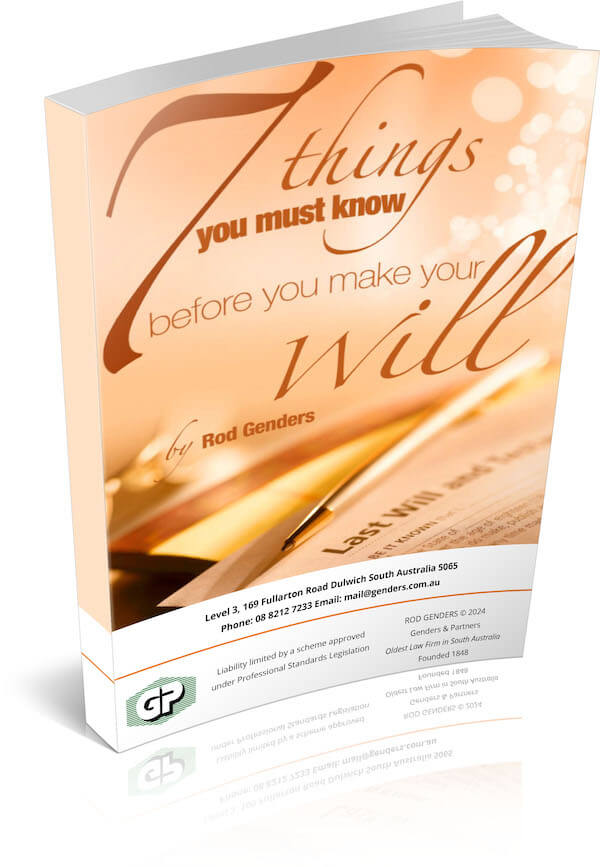
Approximately 10 per cent of older Australians are victims of financial or psychological abuse each year, typically from family and friends pressuring them to provide financially for others.
Many elderly parents do not report their concerns, out of a sense of family loyalty, or feelings of guilt, shame or embarrassment.
As we get older, we tend to be more trusting – particularly of those we have known for a long time.
A 2015 Victorian Royal Commission found that more than 90 % of elderly abusers were family members, and 70% of victims were female.
This is a growing problem that has no social or economic boundaries. It happens in homes, in granny flats, in aged-care facilities and in hospitals all around Australia.
A typical example is where an adult child ‘helps’ their parent to sell the family home, but some of the money disappears, and the child has a new car…
Sometimes, the elder is subjected to ongoing harassment for more funds or is pressured to amend a Will or withdraw superannuation.
These sorts of bullying behaviour are often accompanied by a sense of entitlement form the family-member – along the lines of “I deserve this”.
Justifications will often be made about how much they do for their elder, or that the elder does not need the money.
Very often the abuser tries to justify their immoral (and probably criminal) act by claiming that they would be receiving the money eventually anyway (when the elder dies), so it isn’t really stealing … it’s more like an advance on their inheritance.
Not only is this wrong in law (and ethically), but it’s also remarkable how few of these abusers actually bring this ‘advance’ to account when it comes time to administer the elder’s deceased estate.
In other words, they conveniently ‘forget’ about that earlier ‘inheritance’, and hold out their hand for a full share of the deceased estate as well.
Other typically abusive behaviour can include:
- instructing staff at nursing home to restrict visitors to the elder to only those approved by the abuser. In severe cases, the abuser will remove the elder to a different institution (sometimes interstate) and refuse to disclose the new location in an effort to isolate the elder. This has become known as ‘granny-napping’.
- a family member taking a sudden controlling approach to the elder’s finances;
- coercing the elder for money;
- threating to reduce contact unless demands are met;
- banning the elder from seeing other members of the family, typically beloved grandchildren;
- speaking to the elder in a continually demeaning way;
- treating them like a child;
- telling them they have dementia without a formal diagnosis.
In 2017 the Australian Law Reform Commission published its report: “Elder Abuse – A National Legal Response”, which made some good recommendations including a national register of enduring documents; safeguards against power of attorney misuse; better management and regulation around self-managed superannuation funds; a tightening of controls about witnessing requirements in areas of powers of attorney and advance care directives.
The Law Council of Australia is working with state law societies and other organisations such as the Australian Banking Association, to better education of frontline advisers like medical, banking and financial planning staff so they can recognise the signs of abuse and report suspicious activity immediately, or provide advice.
Ultimately, each if us must take responsibility to protect our own families and our assets. A good first step is to take advice from a senior lawyer who specialises in modern integrated estate planning.
SPECIAL REPORT “7 Things You Must Know Before You Make Your Will”
In this report you will Learn:

Why home-made Wills can be a LOT more expensive than you might think.
The secret weapons used by the rich & powerful to protect their assets, and transfer their wealth two or three generations ahead.
How Estate and Trustee Companies make BIG money from “free” Wills.
The Most Common Estate Planning Mistakes, how they can cost your family a fortune, and How to Avoid Them.
The Elements of a Sound Estate Plan – why a Will alone is not enough.
How to Make Sure Your Assets Stay in Your Family and are not lost to creditors, lawsuits or ex-spouses.
How to guard against challenges to your Estate after you’re gone.